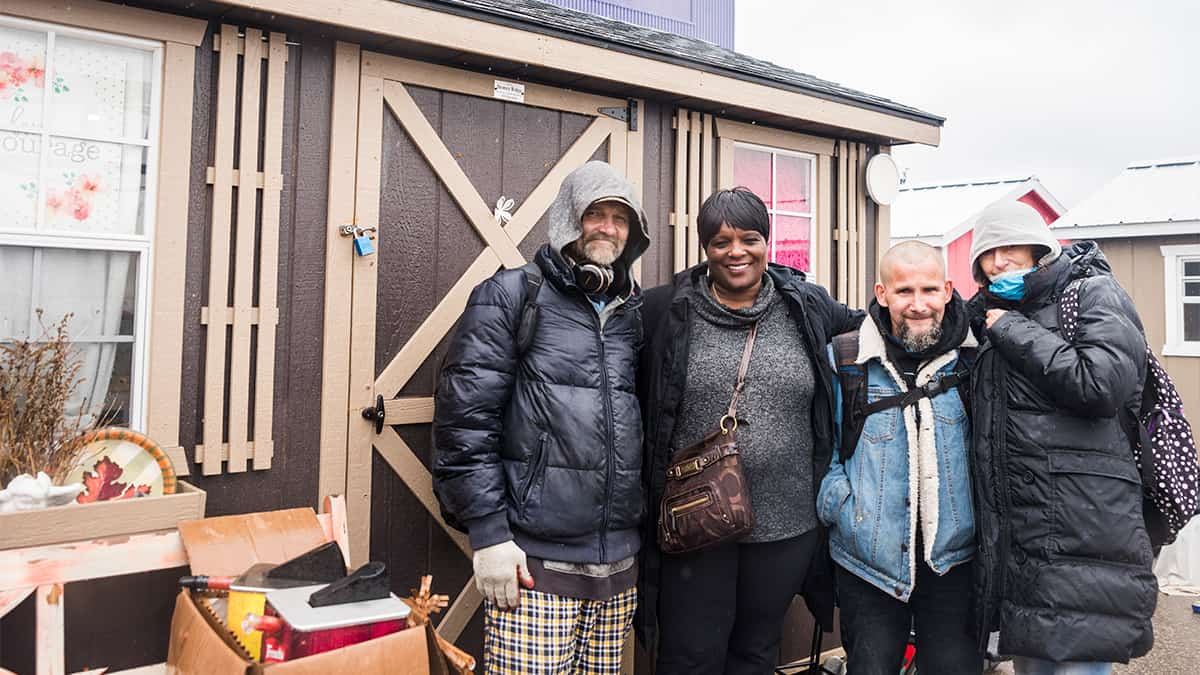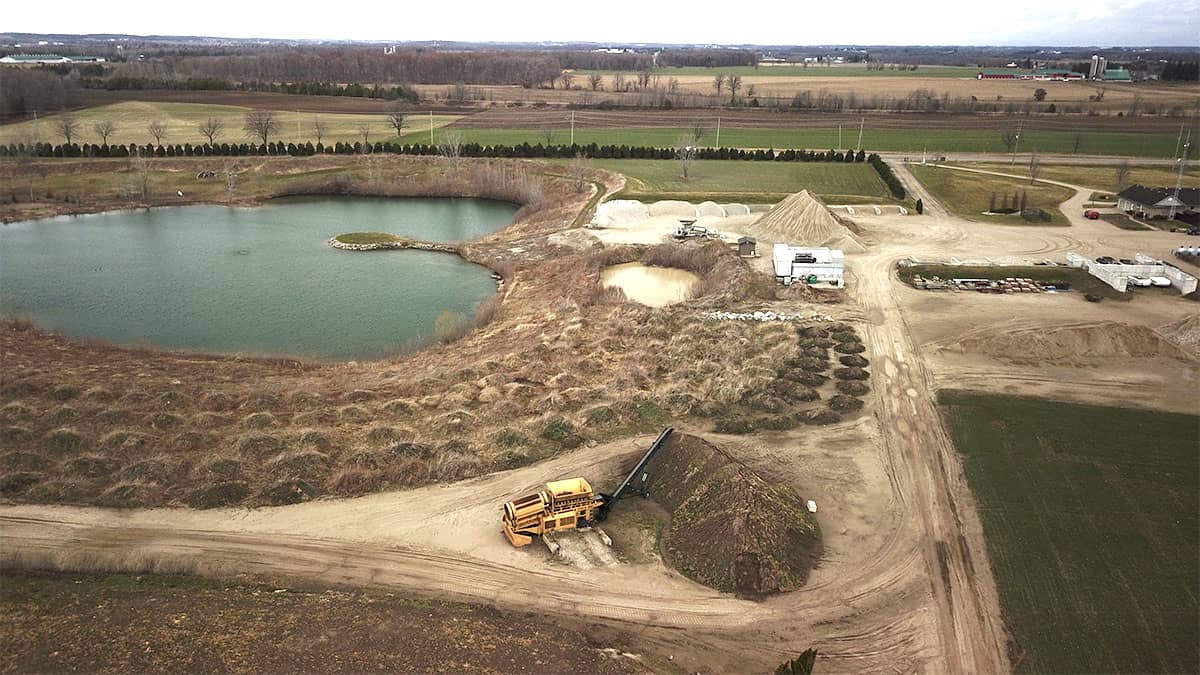A homelessness group’s near-term plans may no longer involve a piece of farmland near Breslau, but Woolwich officials are among those looking to find a new home for A Better Tent City.
While the organization falls outside its official homelessness plan, the region is involved in discussions about ABTC’s future, and is also preparing to help residents if they’re forced to leave the encampment. Currently housed at a site in Kitchener, ABTC and its tiny homes for some 50 people have to vacate the property by June 20.
There is capacity in local emergency shelters to take in more people if needs be, said Chris McEvoy, the region’s manage of housing policy and homelessness prevention, noting that the shelter system doesn’t work for everyone, as has been the experience with some ABTC residents.
“Within our emergency shelters, we strive to create a number of options across shelters, having individual providers and operations that meet the different needs of community members across Waterloo Region. We recognize that we do have options and the shelter system has options, but not enough options to meet everyone’s needs,” he said.
The chief administrative officers of regional municipalities had several meetings last week, with more on tap this week to discuss ABTC’s situation, said Woolwich CAO David Brenneman.
“No answer yet on the immediate concern of where the tent city will move to as of June 20.”
As such, finding a new home remains a priority for ABTC volunteer and spokesman Jeff Willmer.
The organization would prefer to make the imminent move a long-term one, but may have to find a space for the summer months before finding a new home. For now, the Spitzig Road location is off the table, as that would require a formal rezoning process Willmer expects could take a year or two.
“We’d rather not move twice,” he said.
Not an organization that falls within the region’s purview, ABTC’s fate remains on McEvoy’s agenda. Along with making space for ABTC residents in the shelter system, the region is also looking at ways to accommodate those who don’t fit the traditional system.
If it were just a matter of finding a new way to house some 50 people, the problem would be much easier to resolve, said McEvoy. However, there are other homeless people in the system. In May, there were 228 people homeless on any given night in the region, with 346 people deemed as experiencing chronic homelessness.
The solution to homelessness is permanent housing, but that becomes an even bigger target when the issue of affordability is factored into the equation. Right now, there are 6,647 households on the region’s affordable housing waitlist, a number that doesn’t include those who would be eligible but haven’t applied for the likes of rent-geared-to-income units. There’s an even larger pool of people who wouldn’t be eligible, but still struggle to fit expensive rental costs into their household budgets.
The pandemic and the now-lifted moratorium on evictions are likely to make the situation more complicated in the near-term, McEvoy suggests.
The Waterloo Region Housing (WRH) Master Plan approved by regional council in 2019 attempts to get a handle on all of those issues, he said. Among other things, the plan maps out a timeline to create at least 600 new WRH units over the next 10 years. Overall, the goal is 2,500 new units.
For those who need it, the housing would include supports, not simply a place to live – there would be staff and volunteers to help them deal with needs such as addiction and mental health issues, the very thing ABTC is attempting to do for its residents.
“Over the course of the next five years, we’re working to create 2,500 new affordable housing units, some of those being housing with supports for folks who are currently suffering from challenges of concurrent disorders, mental health, addiction challenges, and need that that kind of wraparound support in order to make the successful transition from an experience of homelessness into housing,” said McEvoy.
“Regional council earlier this year committed to investing $20 million over the course of two years – 2021 and 2022 – to increase and accelerate the development of affordable housing, which is where we see the 2,500 units coming from as well.”









